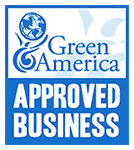Which Water Filter Is the Best?
The Best Water Filter is the one that Removes the Contaminants in YOUR Water

There is no single water filter that you can go buy and know with certainty that it will protect your family
You must first learn what's in your water
The answer is complex. Every company claims to have the best water filter. However, these claims ignore the fact that what YOU need depends on what's in your water to begin with. In order to know which water filter will provide you with healthy drinking water you must first learn what is in your water so that you know what contaminants you must remove. There was a time when clean water was the norm. Not any more. The best water filter for you depends entirely on the contaminants present in your water. In other words the water filter you need depends on your water source and the contaminants that are present. It's going to be different for different locations. Have I made my point? Other prominent environemental organizations (EWG) have followed my lead on this issue.
To know which water filter is the best for your family you have to review your local water report. Only then can you determine the water filter that you need. By identifying the contaminants in your own water and then further identifying the type of filter you need to remove those contaminants you can know with certainty which is the best water filter in your particular situation.
My view is that healthy water comes from (uncontaminated) rivers, springs, and lakes which has been filtered in the home to remove the chemicals added by cities. Ideally this water would contain low levels of naturally occurring minerals. But this is not always possible. There may be contaminants from cities upstream or industrial or agricultural chemicals or there may be naturally occurring metals, like arsenic and uranium or there may be fluoride which force you to make a different choice when it comes to choosing the water filter for your particular situation. I discuss how to choose a water filter in this video:
We have contaminated our rivers and streams with a wide variety of pollutants, including pesticides and, in some cases, a wide variety of unregulated contaminants such as pharmaceuticals and nitrates and even plastic micro fibers discharged from washing machines (from cities upstream). There has been a great deal of press in recent years on unregulated contaminants, including hormones in drinking water. You should not assume that these are present without confirming the fact. If there are cities on the river or lake upstream of where you live then the sewage plants from these cities will be discharging pharmaceuticals in your water supply. You can figure this out by looking at a map. If no cities are present then this is not an issue with your water.
If you don’t know what your water source is you can find out by looking at your city (or other water provider’s) water report. It will also identify the source of your water. For help in finding your local water report, visit Finding Your Local Water Report. I'll tell you how to find your local water report and I interpret one for you:
Water Report
Next you want to review the contaminants listed in the report. This can be confusing for many people but it is an excellent exercise. It may help if you listen to me interpret a client’s local water report at the page listed above. If the only contaminants present are chlorine byproducts then a simple carbon filter will do. This is rarely the case. If you have chlorine or chloramine, the chlorine byproducts, and fluoride then a more complex water filter like my Kitchen Defender will be the best water filter for your family.
If there are cities upstream of where you live then you need a reverse osmosis system to remove the unregulated contaminants including very dangerous pharmaceuticals See my page Drugs in Your Water. Reverse osmosis is often criticized for also removing the healthy minerals in water but if your choice is between minerals plus hormones and other drugs or water purified by reverse osmosis, the decision is an easy one: purify your water. Very low levels of the unregulated contaminants can cause very serious health issues. This is not an issue to take lightly. Please see my resource library for proof.
If your water source is groundwater be sure to look into the issue of total dissolved solids (tds). These are the minerals in your water. Minerals in water are thought by some to be beneficial but they can also be too high. The ideal level of minerals in water is as low as 30 to 250 parts per million (ppm). As water sits in an underground aquifer it dissolves the minerals it comes in contact with. Water that has a high mineral content can be a problem in terms of penetrating your body’s cells, so it may not be hydrating. I prefer to drink filtered water with a tds between 30 and 250, although EPA allows public water to have a tds up to 500 parts per million (ppm). Other factors that would lead me to use reverse osmosis include radioactive metals or the presence of nitrates. Recent studies suggest that nitrates at half the EPA Maximum Contaminant Level (MCL) are associated with bladder cancer in post menapausal women.
The health conscious consumer has basically two choices in identifying the best water filter; either reverse osmosis system to remove dangerous contaminants present from pollution by people, farming, or industry. Or a water filter for a good water source that targets removal of the harmful chemicals added by cities.
These are all just examples of what might be in your water. There was a time when clean water was the norm. That has ended as we have polluted our rivers with treated sewage from cities and pesticide runnoff from farming. And the entire issue of unregulated contaminants has yet to emerge in the public eye. We are conducting a huge experiment on the health of our children as we expose them to contaminants with unknown consequences. And people wonder the source of widespread cancers today.
To learn more sign up for my free email series Five Steps to Healthy Water.
These five steps will guide you through the decision making process of choosing the best water filter for you. They include:
1) write down your goals
2) find your water report
3) look upstream – are there sewage treatment plants or farming
4) identify the treatments you need to remove the contaminants present
5) Buy the system that provides what you need - the best water filter will remove the contaminants in your water, giving you filtered water that actually removes the harmful contaminants in your water providing you with healthy water.
As you can see, choosing the best water filter for your family is more complex than it may first appear. Following these simple steps can help you in making the correct purchase for your family. Be sure to visit the resource library to learn more about the health dangers associated with contaminated water. At Sweetwater LLC we sell the best water filter for you family based on our approach of first reviewing you local water report.
***
SIGN UP FOR MY
FREE E Course:
Five Steps to Pure Water!
or
Purchase My
Ultimate Guide To Selecting The Perfect Water Treatment System
for just $14.95:
***
"What's in YOUR Water?"

James P McMahon
ecologist
Return to the Resource Library
To view my experience and credentials:



